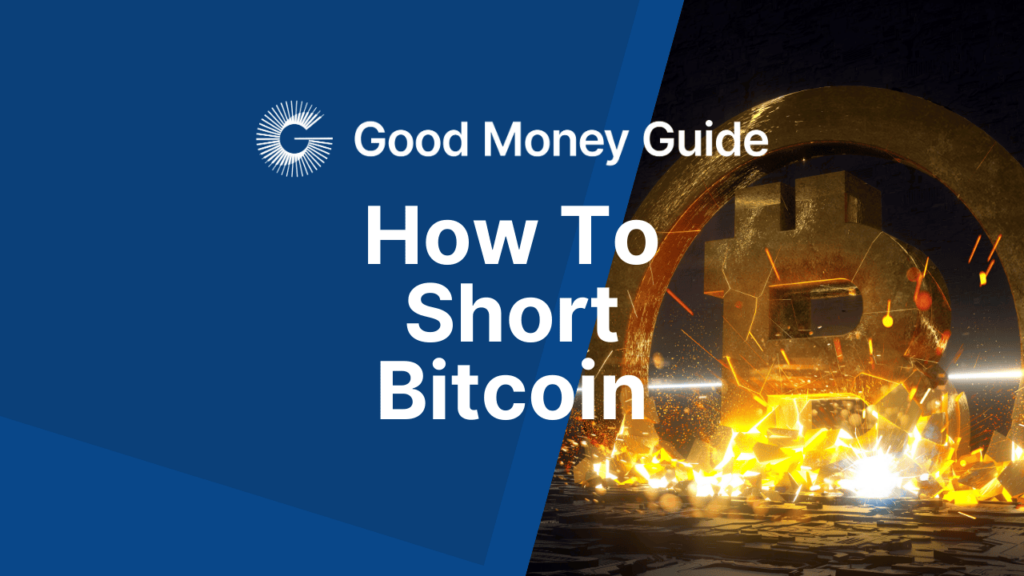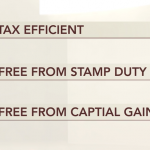I’ve just received a note from Susannah Streeter at Hargreaves Lansdown telling me that “Bitcoin is dropping like a stone as speculators flee risky assets”. Which was bound to happen at some point, or more often that not becuase despite what people think of Bitcoin and how it is the future of money (an excellent book by Dominic Frisby) I’m more on the side of Gary Stevenson, who recently told Piers Morgan that it’s all a ponzi scheme.
I originally wrote this guide on how to short Bitcoin back in 2018 when Steve Strongin, head of Goldman Sachs global investment research, suggested in a research note that as “cryptocurrencies don’t have any intrinsic value it’s unlikely they will survive in the long run”. Since then, Bitcoin has done rather well, so you would done well to of heeded the risks we highlighted of shorting Bitcoin.
But our objective is not to tell you whether or not you should short Bitcoin, that’s up to you. Rather we’re here to tell you how to do it if you’re a crypto bear instead of a crypto bro.
It’s worth noting that market crashes often recover so always make sure you follow our 50 rules for traders if you’re going to get involved.
Shorting Bitcoin Derivatives
Firstly, in order to short bitcoin, you need a cryptocurrency broker of some sort. You can’t short Bitcoin through an exchange because you will need the broker to hedge the short exposure.
You can short Bitcoin through the following types of broker, but only if you have a professional account:
- Spread betting brokers: is unique to the UK because of the Government’s tax position (no capital gains tax).
- CFD brokers: allows customers to enter a contract based on the different between the opening and closing price of the trade (in reality it’s just like buying or selling stocks on margin).
- Futures broker: allows traders to use a direct market access broker to get better pricing and quick trade execution fills. Orders are worked live on the exchange such as the CME or CBOE.
- Bitcoin options: You can buy Bitcoin put options which only cost you the premium so your losses are capped
The main advantages of shorting Bitcoin are that you can do so on leverage (have greater exposure than your account balance) and profit when the price of Bitcoin goes down.
However, there are serious disadvantages to trading Bitcoin deriviatives, the most relevant of which being marging and leveraged profit and loss.
Buying Bitcoin Inverse ETFs
If you don’t want to take the risk of trade Bitcoin on leverage you can buy an ETF that goes up when the price of Bitcoin goes down.
ETFs like Proshares UltraShort Bitcoin ETF (SBIT) can you bought in the same way stocks are traded and avoids significant costs and fees typically required to short bitcoin and can bought through a traditional brokerage account.
It’s not directly aligned to the BBitcoinprice as the fund does not directly short bitcoin so there is no guarantee the fund will achieve its daily performance targets.
However, due to the unique way that the UK is regulated the killjoys at the FCA won’t allow retail investors to buy crypto linked ETFs, becuase they treat eveyone like babies.
The danger here is that instead of letting people do what they want in a regulated and safe environment, people will do what they want to do anyway with an off-shore unregulated broker and get ripped off.
The main risks and disadvantages of shorting Bitcoin
Your losses are unlimited. Unlike going long (buying) Bitcoin the furthest the price can drop is to zero. Which means you know your absolute risk. But when shorting Bitcoin the price can go up indefinitely, which means your losses are theoretically infinite.
There are overnight financing costs to consider. With spread betting and CFDs, your broker will charge you overnight fees to carry a position over. This charge can be quite high as it is expensive for brokers to hedge Bitcoin exposure at the moment. With Bitcoin futures the financing charges are built into the contract month called the “cost of carry” which will be different from the underlying cash price. The futures price and the cash price will eventually come in line. Although, some brokers still charge financing fees.
Currency risk. Although shorting Bitcoin is very volatile there is still a small currency risk between your local currency and the currency of your short Bitcoin position, which would normally be USD. If your local currency moves significantly against the Bitcoin currency position it will have an impact on your P&L.
Illiquidity and volatility. When a currency is illiquid it means there is not that much of it around to trade. The more established an asset generally the more liquid the market is. So if you have a very large Bitcoin short position the market may not be liquid enough for you to close it. When traders try to close a large position in an illiquid market it becomes more volatile meaning it can be hard to close the position at a good price.

Richard is the founder of the Good Money Guide (formerly Good Broker Guide), one of the original investment comparison sites established in 2015. With a career spanning two decades as a broker, he brings extensive expertise and knowledge to the financial landscape.
Having worked as a broker at Investors Intelligence and a multi-asset derivatives broker at MF Global (Man Financial), Richard has acquired substantial experience in the industry. His career began as a private client stockbroker at Walker Crips and Phillip Securities (now King and Shaxson), following internships on the NYMEX oil trading floor in New York and London IPE in 2001 and 2000.
Richard’s contributions and expertise have been recognized by respected publications such as The Sunday Times, BusinessInsider, Yahoo Finance, BusinessNews.org.uk, Master Investor, Wealth Briefing, iNews, and The FT, among many others.
Under Richard’s leadership, the Good Money Guide has evolved into a valuable destination for comprehensive information and expert guidance, specialising in trading, investment, and currency exchange. His commitment to delivering high-quality insights has solidified the Good Money Guide’s standing as a well-respected resource for both customers and industry colleagues.
To contact Richard, please ask a question in our financial discussion forum.




